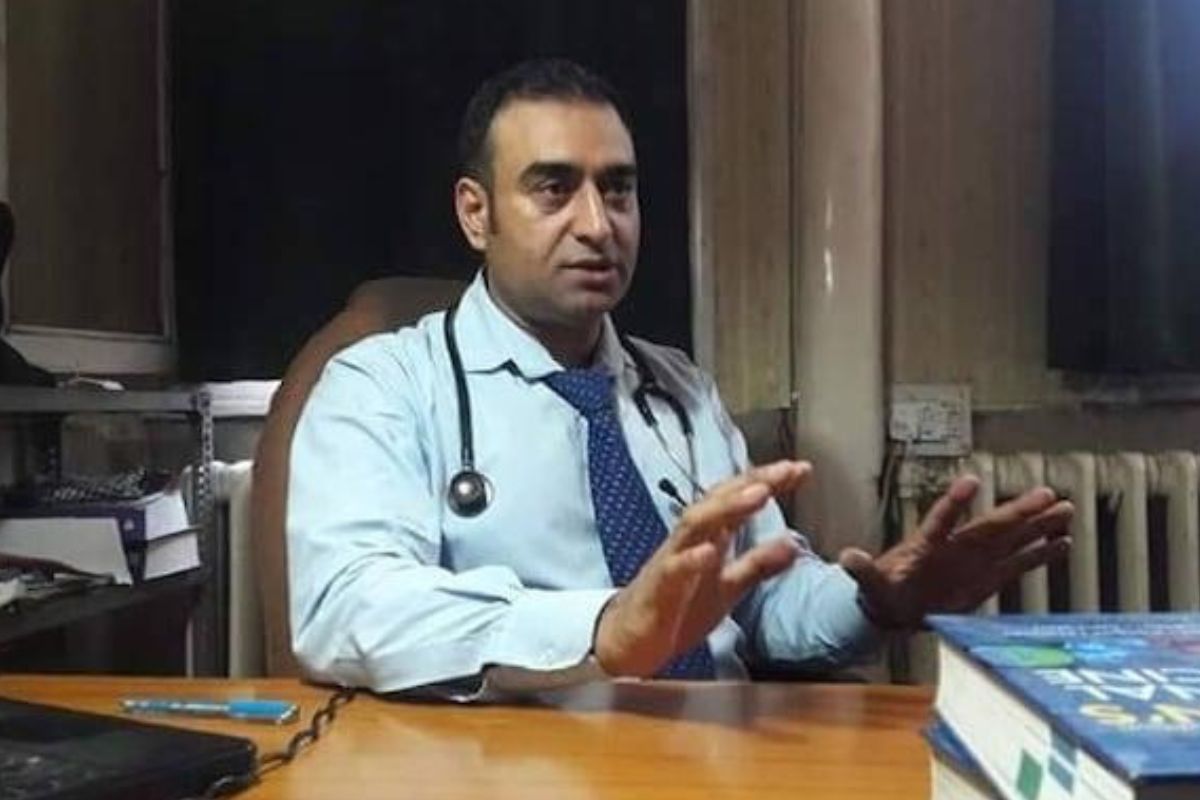SRINAGAR: The Jammu and Kashmir administration took decisive action on Wednesday by terminating the services of four government employees, including a doctor, a J&K police constable, a laboratory bearer in the Higher Education Department, and a teacher in the Education Department. This termination follows their involvement in terrorist-secessionist activities in the region.
The individuals relieved of their duties are Nisar ul Hassan, Associate Professor (Medicine) at Government Medical College in Srinagar; Abdul Majid Bhat, a Constable with J&K Police; Farooq Ahmad Mir, a teacher with the Education Department; and Muhammad Saleem Rather, a laboratory bearer in the Higher Education department.
Nisar ul Hassan, the self-styled but unelected President of the Doctors Association of Kashmir (DAK) for 8 years was using DAK as a subsidiary organisation of terrorist-secessionist outfits. Under his leadership, DAK was propagating secessionist ideology within the medical professionals of J&K and had become a mouthpiece for Tehreek-e-Hurriyat and Joint Resistance Leadership. An FIR was filed against Nisar ul Hassan under Section 13 (unlawful activities) at Police Station Karan Nagar, Srinagar. Despite a suspension from government services, he was later reinstated.
Abdul Salam Rather, a Laboratory Bearer in the Higher Education Department at Government Degree College Pampore, was associated with Jamaat-e-Islami and acted as a conduit for the Pakistani-based terror organisation Lashkar-e-Taiba. He established contact with Habibullah Malik alias Sajid Jutt, from Kasoor, Pakistan Punjab, and helped him build a huge network of overground workers, sympathisers, logistic supporters and recruiters in Frisal, Yaripora, Kulgam, Bijbehara and Zainapora. Sources said he cemented his association with Jutt by offering him his adopted daughter in marriage. He arranged several safehouses for Jutt, one of which he escaped from in 2005, never to return to J&K. Rather and Jutt continue to maintain contact; Rather visited Jutt in Pakistan in February 2016 for 18 days and in July 2017 for 10 days without informing the Government. The National Investigation Agency (NIA) had identified Sajid Jutt as one of the attackers involved in the massacre of minorities in Dhangri, Rajouri district.
Farooq Ahmad Mir, a teacher in the Education Department, was initially a Pakistani-trained terrorist who later became the Commander of Hizbul Mujahideen. He forcefully appointed himself as a Laboratory Assistant and later secured a permanent position as a teacher. Farooq was a key functionary of JeI and Tehreek-e-Hurriyat, involved in major stone-pelting incidents and attacks on security forces. Farooq spearheaded major stone pelting incidents during 2008 Amarnath Land Row agitation , 2010 unrest and 2016 protests in the aftermath of Burhan Wani’s elimination. He was involved in carrying out an attack on a guard post at District Hospital Kupwara. He was arrested in 2010 for instigating violence in Kupwara and spent 6 months in Kot Bhalwal jail, Jammu before his PSA detention order was quashed by the courts. Now-dismissed Farooq Ahmad Mir would openly preach and practise secessionist ideology while drawing salary as a government teacher.
“ Despite being detained under PSA and arrested many times, no disciplinary action was taken against him, he was never marked as absent despite being in jail for six months, and was paid full salary,” an officer told The New Indian.
Abdul Majid Bhat, a Constable of J&K Police, misused his official position for narcotics trade to fund terrorism-related activities. He was arrested in a drug trafficking case in 2022 and is in judicial custody till date. He would collect narcotics sent by Pakistan through Hizb terrorist Shakir Khan and brought from Uri border by associates. Sale proceeds of these drugs would be sent back to Pakistan through cross-border cash transfers, and later used by Pakistan-based terrorist handlers for sustaining terrorists infiltrating into J&K and to keep the terror eco-system up and running.
The administration, under Lieutenant Governor Manoj Sinha, invoked Article 311 (2) (c) to dismiss these employees without an inquiry.
According to sources, a total of 56 government employees’ services have been terminated since 2021 as a part of the J&K administration’s efforts to scrutinise individuals involved in activities warranting action under Article 311(2)(c) of the Constitution. This provision, applicable after the abrogation of J&K’s special status on August 5, 2019, allows for the dismissal of individuals prejudicial to the security of the state without a regular inquiry.










